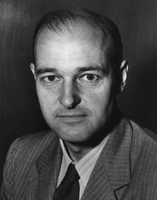Upon taking office in January 2009, in addition to inheriting ongoing wars in Iraq and Afghanistan, President Barack Obama also inherited twin nuclear crises with North Korea and Iran. North Korea conducted its second nuclear test in May 2009, while Iran continues to flout U.N. Security Council resolutions requiring the suspension of its uranium enrichment program, which the United States and other countries believe is central to Tehran's clandestine effort to acquire nuclear weapons. The nuclear crises are playing out against the backdrop of potentially significant societal developments in both countries. In North Korea, a stroke reportedly suffered by Kim Jong Il, the "Dear Leader," has fueled rumors of a succession crisis. Meanwhile, in Iran, the civil unrest that followed the contested presidential election of June 2009 exposed a major rift within the clerical leadership and undercut the regime's domestic political legitimacy.
The Obama administration's dilemma is that the nuclear crises are immediate, whereas the prospects for regime change or evolution in these countries are uncertain. The timelines for nuclear weapons acquisition and societal change are not in sync, and U.S. policymakers can't defer the nuclear issue while some indeterminate domestic political process plays out in the two countries. This dilemma can be managed, but it can't be resolved. In fashioning an appropriate policy response, the Obama administration should look to the strategic playbook of an earlier era: Containment, the strategy adopted by the United States to meet the global challenge posed by the Soviet Union, should be retooled to address these lesser threats of the contemporary era.
At the outset of the Cold War, George Kennan, writing in Foreign Affairs under the pseudonym "X," enunciated his doctrine of containment, whose core premise was a concept of political change for the Soviet Union. Tellingly, the word "containment" did not appear in the title. Kennan's seminal article, "The Sources of Soviet Conduct," elucidated how "the political personality of Soviet power" would shape "Russia's conduct as a member of international society." With a grasp of Soviet reality unparalleled among his contemporaries, Kennan had the genius at the time to grasp that ideas and powerful forces shaping Russian political culture were seeds of change that would be as important as missiles and tanks in the Cold War struggle.

